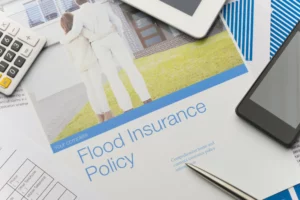Auto Insurance: 30 Commonly Asked Questions
A car is one of the most valuable investments and protecting it is very important. Auto insurance can cover a wide range of events, including collisions, theft, and damage from natural disasters. Auto insurance policies typically include coverage for property damage, medical expenses, and legal fees resulting from an accident. The coverage provided by an auto insurance policy can vary depending on the specific policy and the state in which it is purchased. Most states require drivers to have at least a basic level of auto insurance coverage in order to legally operate a vehicle.
These are the 30 commonly asked questions about Auto Insurance:
What Is Auto Insurance?
Auto insurance is effectively a contract between yourself and an insurance company in which you agree to pay premiums in exchange for protection against financial losses stemming from an accident or other damage to the vehicle.
When should I buy auto Insurance?
You should buy auto insurance before buying a car. Driving without insurance is often illegal and leaves you financially vulnerable in the case of an accident.
Is car insurance mandatory?
Car insurance is required in all but two states, New Hampshire and Virginia. If you’re in Minnesota, Wisconsin and Arizona (our service areas), you will need adequate insurance to drive on public roads.
I’ve gotten into a car accident, what do I do now?
Exit your vehicle if you can, turning on the emergency flashers.
If the accident is more than just a minor incident or if anyone is injured, call 911 to get medical personnel to the scene as quickly as possible. Even if the accident was relatively minor, call the police to get a police report. There may be a non-emergency help line.
Exchange insurance and contact information with the other driver(s) involved.
If there are witnesses to the accident, get their contact information as well.
Take photos of the accident scene, including any damage to the vehicles and the surrounding area.
Less is more, don’t speak too much with the other party outside of exchanging information and don’t apologize as you may be admitting fault.
I need cheaper Insurance what should I do?
Prices vary from company to company, so it pays to shop around with an independent agent. Get at least three price quotes from your independent agent. You can also amend your coverage to possibly get better pricing.
How do I find the cheapest rates for auto insurance?
Shopping around for car insurance quotes is the best way to find cheap auto insurance.
Having good credit and a clean driving record can also keep your rates low.
Ask about discounts you might be missing from your policy. An experienced agent will ask you the questions necessary to determine what you qualify for. Bundling is a quick and easy way to save.
I don’t have a car; do I still need auto insurance?
If you never drive, there’s no reason for you to have insurance. If you don’t own a car and only drive occasionally, purchasing insurance may not be necessary. If the car’s owner has adequate coverage, they can list you as a driver and you won’t have to purchase insurance. If you borrow or drive non-owned cars regularly you should obtain a named operator policy. It provides liability coverage.
What type of car insurance do I need if I don’t have a car but drive regularly?
If you drive but don’t own a car, non-owner car insurance (aka named operator policy) can help you meet your state’s minimum insurance requirements to drive legally. A basic non-owner car insurance policy provides liability coverage if you’re responsible for an accident. It can cover you when you’re renting a vehicle, borrowing someone else’s car, and or using a car-sharing service.
What are the benefits of a non-owner insurance policy?
This insurance coverage insures the driver or operator, not the car. In other words, the driver or operator would be insured no matter what vehicle was driven. This can help you maintain insurance even when you don’t own a car and keep premiums low because of the continuous insurance coverage that you’ll have. If you go without a policy for even a day that will increase the premiums for the next policy you purchase.
I can’t get a hold of the person at fault, what do I do now?
This is a very difficult situation to be in, but it is one of the most common situations to be in after a car accident. Try the following:
Check the police report: The police report from the accident may contain contact information for the other driver, such as their name, address, and phone number.
Contact the other driver’s insurance company: If you have the other driver’s insurance information, you can try contacting their insurance company to report the accident and ask for assistance in getting in touch with the driver.
Try to locate the driver through social media: If you know the other driver’s name, you may be able to find them on social media platforms like Facebook or LinkedIn.
Contact the Department of Motor Vehicles (DMV): The DMV may have contact information on file for the other driver. You can try contacting your local DMV office to see if they can provide any assistance in locating the other driver.
If you still can’t locate them, you should be explaining the situation to your attorney for them to take over all communications. Your personal injury attorney will communicate with insurance companies to make sure that the at-fault driver does respond.
Does my personal auto insurance cover rental cars?
Your personal auto policy likely covers you in a rental car, but you are covered at the same limits as your auto policy. If you carry liability-only insurance, you can either reach out to your insurance agent and have your policy changed to include full coverage while you are renting a car, or you can purchase additional insurance from the car rental agency. Always check the coverage on your insurance policy with your agent.
Will my personal auto insurance cover me as a delivery driver?
Some personal auto insurance policies may provide coverage for damages or injuries that occur while you are using your car for work-related purposes, such as making deliveries. Other policies may exclude coverage for work-related use of your car or may require you to purchase a separate endorsement/policy to provide coverage while you are working as a delivery driver. Most exclude coverage for delivery drivers unless a separate endorsement is added. Check with your agent to see if your policy offers this kind of coverage.
Does car insurance cover the theft of personal items?
No, your auto insurance won’t cover personal items stolen from your vehicle, such as your laptop, briefcase, or cell phone. However, your renters or homeowners policy may cover personal belongings stolen from your car, even if they were stolen while the car wasn’t on your property.
Will my credit score affect my rates?
Many auto insurance companies use a credit-based auto insurance score to help them decide whether to take you on as a policyholder, as well as the premium you’ll pay if they do. The lower your credit score, the more you will have to pay in premiums. The higher your credit score the lower your car insurance premium will be.
What happens if I have a lapse in coverage?
If an insurance company sees that you had a period with no insurance, they will most likely consider you a higher risk and raise your premiums. Driving without insurance could also result in fines, tickets and a suspended license, depending on the rules in your state. It’s important to keep continuous car insurance coverage, even if it’s the minimum amount your state requires.
I got into an accident a while ago, how long does it take for the incident to stop affecting my auto insurance rates?
A premium increase after an accident will usually last anywhere from three to five years — but this varies by company and state. The severity of the accident and the state in which it occurred; also determines the duration it stays on your record. The surcharge will often decrease over time if you don’t cause any more accidents.
Why should I bundle my auto insurance with my home insurance?
When you bundle your home and car insurance policy with the same insurer, you typically see a reduction in your premium. It’s a way of passing some of the profit and savings back to you in return for trusting your provider with both home and auto needs.
What is gap insurance?
Gap insurance (aka guaranteed asset protection) is an optional car insurance coverage that helps pay off your auto loan if your car is totaled or stolen, and you owe more than the car’s depreciated value. Gap insurance may also be called “loan/lease gap coverage.” This type of coverage is only available if you’re the original loan- or leaseholder on a new vehicle. Gap insurance helps pay the gap between the depreciated value of your car and what you still owe on the car.
What happens if I don’t get auto insurance?
If you choose to drive without car insurance, you will likely face legal consequences. You could be ticketed, have your license suspended, or even go to jail. If you get into an at-fault accident without liability insurance you will be held responsible for all the damage you cause, which means you’ll be expected to pay those costs out-of-pocket. These expenses could include medical bills for injuries you cause, which add up very quickly for even small injuries. You typically need proof of insurance to get your car out of an impound lot or renew the car’s tabs as well.
Does my auto insurance cover damages if I lend my car to someone else?
Your auto insurance policy is for the car, not the driver, meaning your auto insurance will cover damages incurred by a friend or family member who borrowed your car, up to your policy limit. The driver’s auto insurance serves as secondary coverage, kicking in after the limits of your policy have already been reached. Regular drivers should be added to the policy however to avoid any issues when it comes time to file a claim.
Am I covered if my car breaks down?
Your auto policy generally won’t cover a car’s mechanical failure if it’s not due to a collision or vandalism. If your car breaks down, check to see if it’s still under warranty to save on repairs. If you have towing or roadside assistance coverage, it may help get you to a mechanic.
What’s the difference between liability and full coverage insurance?
Liability coverage auto insurance insures against the damage you could cause to other people or their property in the event of an accident for which you are at fault.
Full coverage auto insurance includes liability but also includes collision and comprehensive coverage. Collision coverage covers the cost of damage to your vehicle in a collision for which you are at fault. Comprehensive coverage covers damage to your vehicle caused by weather, theft, animals, and vandalism.
Does my vehicle affect my car insurance rates?
Yes. The make and model of the car you drive play a factor in your car insurance rates, the car safety rating, the demographic of people who drive that model of vehicle play a factor. The cost of your vehicle also makes a big difference; the more it costs to repair or replace your vehicle, the more you will pay to insure it.
What is personal injury protection (PIP)?
Also referred to as no-fault insurance, PIP covers the costs if you or your passengers are injured in an accident, regardless of who was at fault. PIP insurance provides coverage for medical bills, lost wages, funeral expenses, and other essential services after an accident. PIP is a required coverage in no-fault states which includes Minnesota.
What is comprehensive coverage?
Comprehensive insurance covers the cost of damage to your car caused by something other than a collision, like theft, vandalism, fire, natural disasters, falling objects, and animal damage. Comprehensive coverage is typically sold with liability insurance and collision coverage as part of a full coverage insurance policy.
What is collision coverage?
Collision coverage pays for damage to your car in the event of an accident, no matter who is at fault, including accidents with other cars and accidents where you hit a stationary object, like a tree or a telephone pole. Collision coverage is typically sold with liability insurance and comprehensive coverage as part of a full coverage insurance policy.
Do I need different insurance for other types of vehicles?
While your standard auto insurance policy will cover your car, you may need different types of insurance if you have different types of vehicles. Commercial trucks, motorcycles, ATVs, and RVs all require their own kind of insurance, which can be purchased from most insurance companies.
What are my payment options? Can I pay for my car insurance in installments?
While car insurance can be expensive and many might not have the money on hand to pay for it upfront, some companies do have payment options that can alleviate that strain. Most insurers offer affordable installment plans options – it’s just a matter of inquiring about your options, especially if you know that it’ll be problematic to pay for your insurance annually.
What is Risk Assessment and why is it important?
The insurance rate you’re offered by the company is based on several factors that comprise how much of a “risk” do you pose to the company. Simply put, this is the assessment of how likely you will be involved in an accident and make a claim. Things such as where you live, where you drive, the hazards you face in those areas, and any other conditions (susceptibility to damage, driving purpose, etc.) are taken into consideration when determining your rate. Risk assessment is important because insurance companies will base their insurance rates on these factors. The more of a risk you pose, the higher your rate will be.
How can I get discounts?
Most car insurance companies offer dozens of different discounts. But unless you volunteer certain information, or your agent asks you specific questions, you may never know whether you are eligible for those discounts. Ask your agent to assess what discounts are available to you.
Getting the right auto insurance coverage is crucial. To protect your assets, you need to have enough coverage to meet costs. Now that you’re familiar with the most common car insurance questions, you’re prepared to find a policy that best meets your needs.
Have any more questions we didn’t cover? No worries – you can get the answers you need. Contact or email us now!



